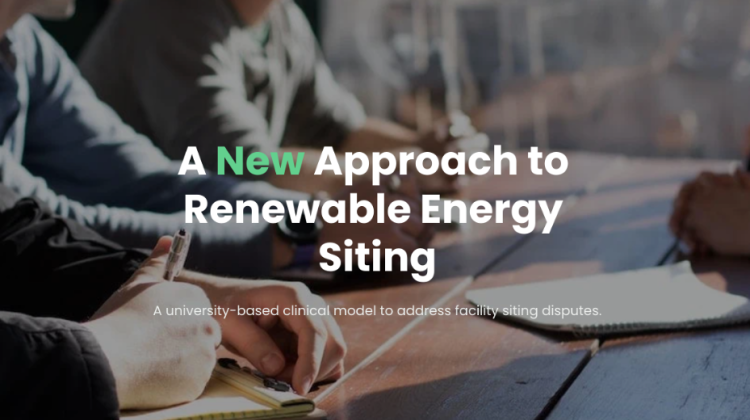Renewable Energy Siting Clinic

Meeting U.S. decarbonization goals necessitates a rapid transition to renewable energy. Understanding sources of local resistance and transforming the facility siting process are essential next steps to ensure that renewable energy projects are not blocked by local opponents.
The MIT Renewable Energy Clinic provides a neutral forum to help all relevant stakeholders including the developers and communities in achieving a collaborative siting process. Case-by-case consensus building and joint problem-solving—rather than a general solution— is crucial to brokering fair and efficient agreements. A clinical approach to mediation in renewable energy projects can result in more collaboration between stakeholders and citizens, ensuring that every project develops fully in a way that is agreeable to all stakeholders and benefits the community.
To learn more about our university-based clinical approach visit our website.


